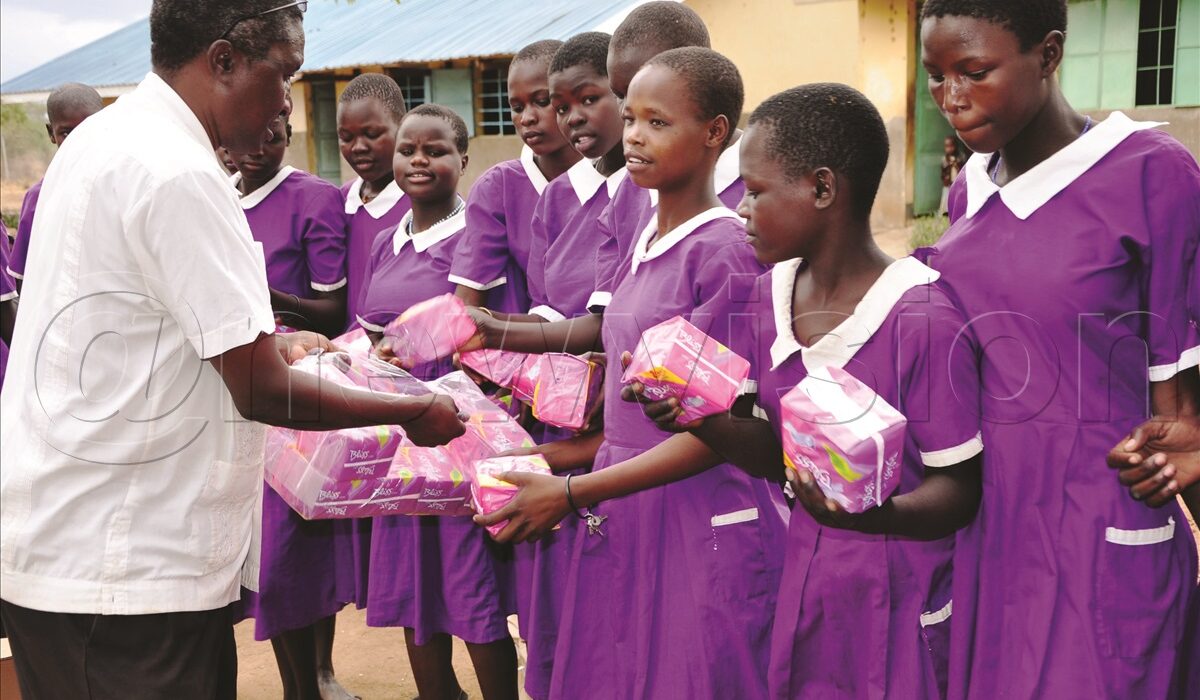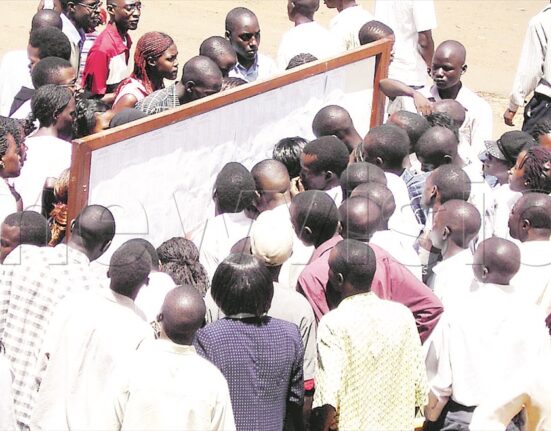(This article was first published in the New Vision on June 2, 2021)
By Francis Mujuni
Last Friday, Uganda joined the rest of the world to commemorate the World Menstrual Health (Hygiene) Management Day in various parts of the country.
Menstrual hygiene day is an annual awareness day that aims at highlighting the importance of good menstrual health (hygiene) management at a global level. It was initiated by the Germany-based non-governmental organisation — WASH United — with the support of over 270 global partners and adopted by the UN in 2014.
Menstruation is an integral and normal part of human life, indeed of human existence. Menstrual hygiene is fundamental to the dignity and wellbeing of women and girls and an important part of the basic hygiene, sanitation and reproductive health services to which every woman and girl has a right.
Globally, 52% of the female population (26% of the total population) is of reproductive age. Most of these women and girls will menstruate each month for between two and seven days.
The subject of menstruation, however, is too often taboo and has many negative cultural attitudes associated with it, including the idea that menstruating women and girls are ‘contaminated’, ‘dirty’ and ‘impure’.
Women and girls in rural settings, and in particular girls in school, suffer most from stigma and lack of services and facilities to help them cope with the physical and psychological pains they undergo during their menstrual periods.
Some of the challenges they face include inadequate preparations for young girls not yet experiencing menstrual hygiene, lack of or inadequate water to clean and wash the body, and lack of materials for managing menstrual hygiene. Others are lack of private space and wash rooms, as well as inappropriate facilities for disposal of materials for those who have used pads. In spite of these issues, menstrual hygiene has been routinely ignored by professionals in the water, health and education sectors.

To break taboos surrounding menstruation, there is a need to raise awareness about the importance of good menstrual hygiene management worldwide. The day is a global platform that brings together non-profit, government agencies, individuals, the private sector and the media to catalyse advocacy and action towards a world where women and girls are no longer limited because of their monthly menstrual periods.
But why menstrual hygiene management? Because it is both a human right and health issue; where women and girls are entitled to live a life of dignity. Why this date and month?
The menstrual hygiene management date and month were chosen intelligently and metaphorically. The average menstrual cycle is 28 days in the majority of women/girls, thus the date 28th, while the days a woman/girl spends in the menstrual period range between three to seven, whose average is fi ve, thus the month of May.
According to the UN Sustainable Development Goals (2015-2030), all nations should work towards ensuring healthy lives and wellbeing for all at all ages (SDG 3).
There is a need to ensure inclusive and equitable quality education and promoting lifelong learning (SDG 4), achieving gender equality and empowering all women and girls (SDG 5); ensuring availability and sustainable management of water and sanitation for all (SDG 6), and ensuring decent work and economic growth (SDG 8).
In an effort to ensure dignity for women and girls, the UN declared May 28, every year, a day to mark menstrual hygiene. In spite of the current awareness about menstrual hygiene management for women and girls, many of its pertinent issues remain underserved.
In low and middle income countries, families, communities and schools have not been adequately provided with menstrual hygiene management guidance, information, sanitation facilities and materials for girls and women. This has made it difficult for them to adapt to their body changes and the external environment.
This challenge remains one of the contributing factors to the prevailing high rate of school dropout among girls in the Ugandan schools and with COVID-19 effects, the situation is even worse.
In Uganda, the week-long commemoration activities and the menstrual hygiene management D-day preparations are being co-ordinated by the gender and equity budgeting unit of the Ministry of Education and Sports, under the global theme; More action and investment in menstrual health and hygiene now!
These activities will provide the various stakeholders involved in this field a platform to break taboos surrounding menstruation and raise awareness about the importance of good menstrual hygiene management in the country. The day will provide a platform to discuss the impact of COVID-19 on the management of menstruation among women and girls.
It will provide a forum for stakeholders to reflect on the progress made so far in promoting menstrual hygiene management and identify existing critical gaps.
It will further help in laying strategies for strengthening menstrual hygiene management education, strategic partnership, including resource mobilisation, knowledge sharing and co-ordination of menstrual hygiene management interventions in the country.
A conference report with recommendations to the various stakeholders will be compiled at the end of the day.
Other lined up activities include awareness creation through media engagements at national and in selected districts by the Human Capital Development, together with civil society organisations, where the gender unit has assisted in developing talking points for the media engagements.
The United Nations Population Fund has organised round table discussions on the menstrual hygiene management products available in Uganda and elsewhere. The education ministry and civil society organisations that work in schools have chosen to commission completed sanitation facilities (girls’ toilets) in different schools and districts. Most of these facilities have attached or detached incinerators to help in hygienic disposal of menstrual matter. An incinerator is an apparatus for burning waste material, especially industrial waste, at high temperatures until it is reduced to ashes.
This is what is being applied in schools to burn used menstrual pads. This is because a number of schools are now adopting the construction design of drainable latrines and incinerators come in handy to avoid those latrines getting filled up quickly or causing challenges during the draining process (removal of faecal slug) since the non-re-usable pads are non-degradable.
It is important that all of us who have gained knowledge and awareness about this subject do not keep quiet but rather continue to spread the word and take action so that we stop the suffering of our mothers and sisters because of our past limited knowledge.
The writer is a teacher and public health worker









Leave feedback about this